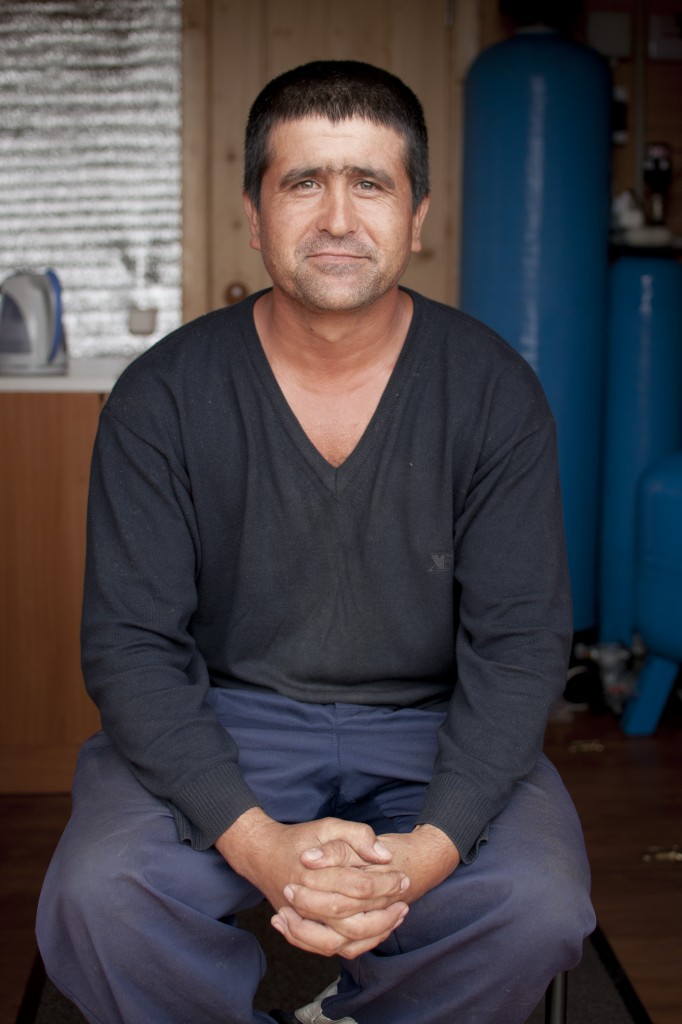Zhora’s real name is Jamolitdin. Just like thousands of other migrants, Jamolitdin came to Russia to earn money. He left his parents, wife, and four children behind. Zhora is from Tajikstan; he was born and raised in a tiny mountain village on the border of Afghanistan.
Zhora was educated as a lawyer and graduated from law school in Dushanbe, but afterwards served as a border patroller. ”Tajik Special Forces,” Zhora says proudly as he shows a few self-defence moves. Generally, the relationship between the Tajik and Afghan border patrol is very amiable. They share the same mountains, the same passes, and the same border that follows along the narrow Panj River. Thanks to a common language, it is possible for both border patrols to communicate with one another across the river during times of bypass. One time Zhora came across contraband traffickers and miraculously made it out alive while still maintaining friendly ties with local Afghans. As Zhora explained, say hello every day and ask about the family, livestock, and children, then you can expect not to be shot at. Eventually his wife said, “Enough risking your life. I want my children to have a father,” and so Zhora left government service.
Zhora started to work construction in the Moscow suburbs seven years ago. He has been deported from Russia twice for fighting with Dagestanis, but acquired a new passport under a new name and returned to Moscow. “Change a few letters in your name and they will probably never find you in the database,” he says. Since then much has changed and the fights, parties, and card games of the past have been replaced with new interests. Zhora began to observe Islam, settled down, and found work as a guard in a small village, far from the temptations of the big city.
For two years now Zhora has lived in a lodge as a security guard at a country home. Zhora travels to Moscow for important Islamic holidays. The majority of the year he spends in the little village, but one month every year he takes leave from work to go see his family. “Summer isn’t bad. There are people around, summer cottages, and construction workers, but during winter there isn’t a living soul around. And there’s only one task: shovel the snow away from the house,” says Zhora. But he doesn’t complain about work. Home in Tajikistan there are absolutely no prospects for work. It is only with the 20 thousand rubles he earns in Russia, which he sends home every month, that he is able to feed his entire family.
Zhora has no friends in the small village and little entertainment. At least he has a warm house, a functioning shower and toilet, a cat that follows him wherever he goes, and a big dog.
Translated by Chase Philpot

